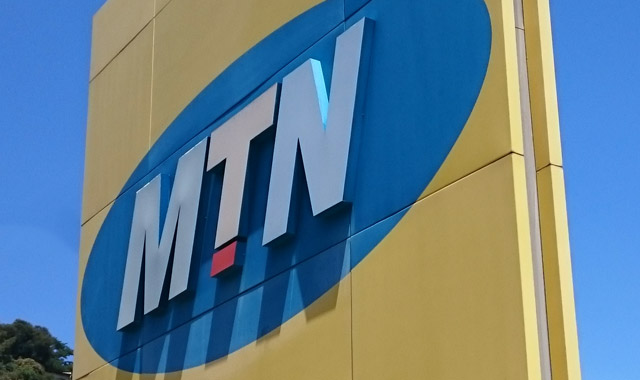A seemingly innocuous announcement made last week is scratching up something very huge; so huge that we don’t really know how huge it is at the moment. The announcement was to the effect that MTN Nigeria and Airtel Nigeria have been awarded PSB licenses by the Central Bank.
PSB is Payment Service Bank. The license is issued by the Central Bank of Nigeria (CBN) to telcos to enable them leverage on their massive infrastructure rollout and dealer network to offer some banking services especially to the underbanked, The simple meaning being that anywhere you are in Nigeria with a phone number and a handset, including I-better-pass-my-neighbour handset, you will be able to do some banking transactions.
It is kudos to the Central Bank and a brave retreat from previous error of judgement when initial licensing was done.
I was almost emotional and I will explain why. At AfricaCom in November, 2018, in Cape Town, South Africa, former Group Managing Director of MTN, Rob Shutter, had made a bold pitch for the Nigerian money sector, announcing to the audience that the country was in the process of licensing telcos to play in the sector, and that MTN was preparing in a big way to leverage on their experience in other countries of the continent to play a very pronounced role. That for me was a great moment, that a major operator in the continent should speak so highly of the Nigerian market, and, in fact, market the country more than some people who are paid heavily to do same job but ill-equipped to handle it.
Advertisement
But things would always go the Nigerian way, when wonders or abracadabra supersede reason. When results were announced, both MTN and Airtel did not meet the cut. The reasons adduced were trashy as they were puerile, quite economically wayward and illogical enough to ambush the good intentions the CBN had nursed in planning the entire process. It was the downside of a good idea and the results have been shoutingly disappointing.
The announcement last week by the CBN was to right such wrong and to demonstrate that the real strength of a great man or institution lies in admitting a wrong and getting the balls to do the right thing.
Let’s look at a little story. The National Financial Inclusion Strategy (NFIS) which sought to ensure that over 80 per cent of the bankable adults in the country had access to financial services by 2020, was launched on October 23, 2012, by the Cental Bank in collaboration with other stakeholders. The primary target was to reduce the exclusion rate to 20 per cent by the year 2020.
Advertisement
However, in an October 5, 2018, Exposure Draft on the Guidelines for Licensing and Regulation of Payment Service Banks, addressed to industry stakeholders, the Central Bank confessed that in spite of taking sundry measures, including the introduction of Micro Finance Banking, Agent Banking, Tiered Know-Your-Customer Requirements and Mobile Money Operation (MMO) in pursuit of the objective, the Central Bank confessed the results have not been good.
In doing that reality check the Central Bank, along with other stakeholders which include: Nigerian Communications Commission, Commercial Banks, Mobile Money Operators, and Telecommunications companies conducted some research to determine the way forward, and voted for PSBs as an attractive critical element of growth since the telcos have a wider reach and more robust network than all the banks combined.
“The key objective of setting up Payment Service Banks,” according to the CBN documents, “is to enhance financial inclusion in rural areas by increasing access to deposit products and payment/remittance services to small businesses, low-income households and other entities through high-volume low value transactions in a secured technology-driven environment.”
The PSBs can target the underbanked and remote communities to provide very simple banking services which include but not limited to, savings, deposits, transfers, remittances, investment in bonds and other services to make life easy financially in any location in Nigeria where there is a telecommunications network. They can also issue debit cards.
Advertisement
It would seem the Central Bank is trying to reduce the pressure on the traditional banks who are sometimes, pressured to expand services beyond their reach and capacity irrespective of returns in that environment.
But in that effort of the Central Bank is a contradiction and competition that may alter the field of play forever. There are over 200m phone lines in the country. Each line can almost be an account that can be used by the owner. The only disadvantage for some big fellas is that they can no longer lie about not being able to go to bank and do transfers. Just a little work on the phone, and the deed is done. The Central Bank is looking for an integration of the rural communities and the unbanked in the inclusive banking system, and this may just be it.
In September 2019, three PSB licenses were issued as follows: Globacom’s Money Master, 9Mobile’s 9PSB and Hope PSB, a subsidiary of Unified Payment. From all indications, they have seemed to under performed.
Some industry experts have told this writer that the coming of MTN and Airtel is expected to animate the industry with new life and excitement for some obvious reasons. The combined infrastructure resource of the two operators is huge and spans the length and breadth of the country. Being two of the biggest operators in the country, their dealer network also gives them an overwhelming advantage. The strongest factor yet is that both MTN and Airtel have provided same services in other market jurisdictions and would now have to tap into accumulated experience to do something quite racy, nuanced and rewarding to service providers and subscribers.
Advertisement
There may be some regrets that the first licensees did not take full advantage of first mover experience but the reality is that real competition is about to start in the PSB ecosystem. My little call is for Nigerians to position themselves for market benefits and opportunities that will be unleashed.
Advertisement
Views expressed by contributors are strictly personal and not of TheCable.
Add a comment







